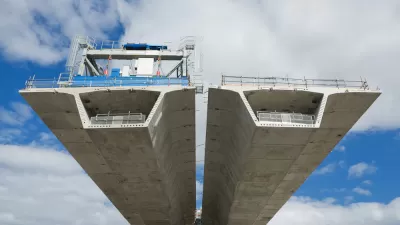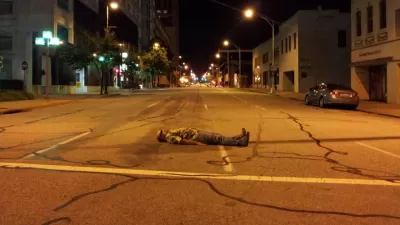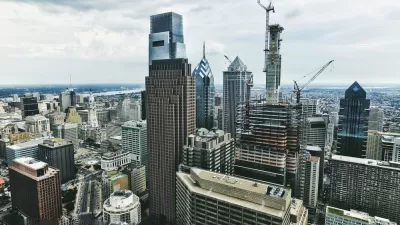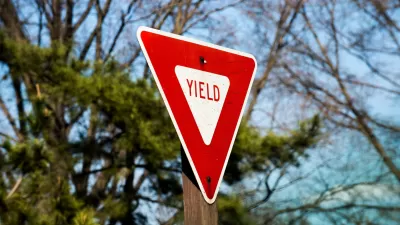Charles Marohn of Strong Towns makes the case that whoever's in the White House, simply increasing federal spending on infrastructure isn't the wisest move.

In this piece, Charles Marohn argues that the relationship local governments have to federal funding is fundamentally unhealthy. He writes, "the way we have structured our governments, cities sit at the bottom of the food chain. Their bureaucracies are oriented up that chain, looking to the programs of state and federal governments for solutions. Instead, they need to be reoriented to the neighborhoods in their own communities."
Marohn cites several ways federal spending can give cities a short-term boost, but saddle them with long-term consequences.
- That the federal government "will pay to build things and then state and local governments are tasked with maintaining them."
- Federal infrastructure spending favors low-density, low-amenity suburbs and exurbs: areas with the highest costs and lowest returns.
- In a slow-growth or no-growth economy, federal spending should to support maintenance and efficiency rather than new construction.
- Federal projects put localities into a debt cycle. "Local governments generally rely on property and sales tax, but federal projects rarely add enough to the local tax base to extinguish the debt while sales tax revenue from a project, if there is any, ends with the project."
FULL STORY: Five Ways Federal Infrastructure Spending Makes Cities Poorer

Planetizen Federal Action Tracker
A weekly monitor of how Trump’s orders and actions are impacting planners and planning in America.

Congressman Proposes Bill to Rename DC Metro “Trump Train”
The Make Autorail Great Again Act would withhold federal funding to the system until the Washington Metropolitan Area Transit Authority (WMATA), rebrands as the Washington Metropolitan Authority for Greater Access (WMAGA).

The Simple Legislative Tool Transforming Vacant Downtowns
In California, Michigan and Georgia, an easy win is bringing dollars — and delight — back to city centers.

The States Losing Rural Delivery Rooms at an Alarming Pace
In some states, as few as 9% of rural hospitals still deliver babies. As a result, rising pre-term births, no adequate pre-term care and "harrowing" close calls are a growing reality.

The Small South Asian Republic Going all in on EVs
Thanks to one simple policy change less than five years ago, 65% of new cars in this Himalayan country are now electric.

DC Backpedals on Bike Lane Protection, Swaps Barriers for Paint
Citing aesthetic concerns, the city is removing the concrete barriers and flexposts that once separated Arizona Avenue cyclists from motor vehicles.
Urban Design for Planners 1: Software Tools
This six-course series explores essential urban design concepts using open source software and equips planners with the tools they need to participate fully in the urban design process.
Planning for Universal Design
Learn the tools for implementing Universal Design in planning regulations.
Smith Gee Studio
City of Charlotte
City of Camden Redevelopment Agency
City of Astoria
Transportation Research & Education Center (TREC) at Portland State University
US High Speed Rail Association
City of Camden Redevelopment Agency
Municipality of Princeton (NJ)





























